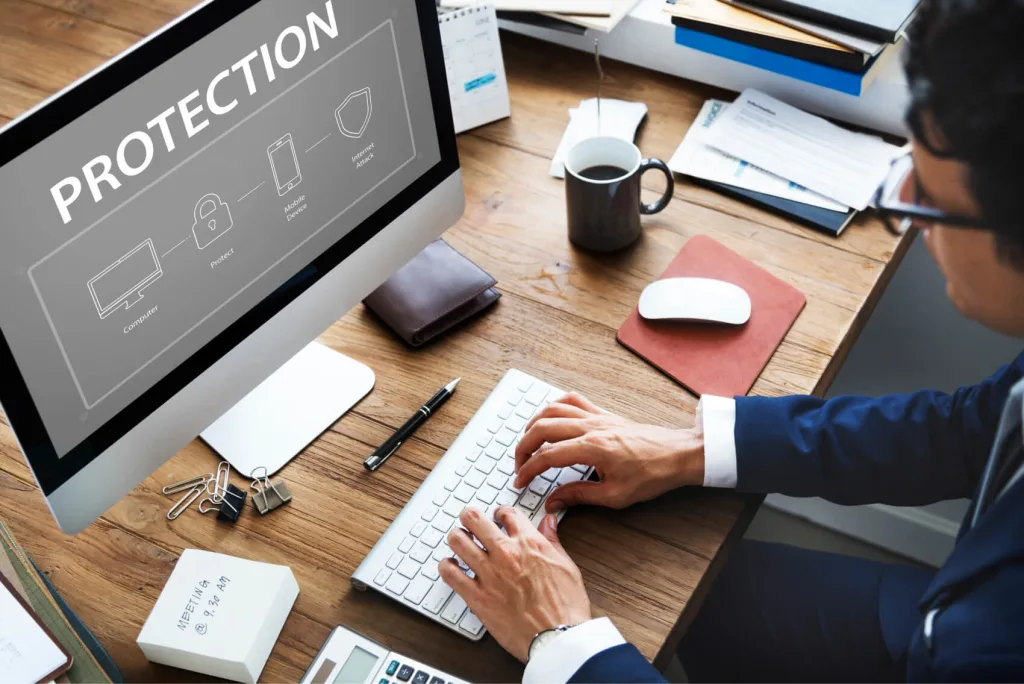Are you wondering what IT security is? In organizations and groups with an online presence it is quite common to suffer cyber attacks with the intention of stealing confidential data. Therefore, it is important to have a good cybersecurity system in place to prevent unauthorized use of a computer system.
In this article we will discuss its definition, main threats and how Viafirma can help you to protect your most sensitive contracts.
What is IT security?
IT security refers to the protection of information and, in particular, to the processing of information, with the aim of preventing the manipulation of data and processes by unauthorized persons.
Its main objective is that people, technological equipment and data are protected against third-party threats. It prevents the intervention of unauthorized operations on a device or network, which can compromise hardware, software or even the user.

Main threats
Computer security threats pose potential dangers that can affect the normal operation of your equipment. Today, cyber threats are constantly increasing due to the digitization of businesses.
The most damaging types of computer security threats are:
- Virus: A computer virus is a malicious program that is installed on the user’s computer without the user’s knowledge. It reproduces itself and infects the files and programs on the device. The goal of a virus is to make sure that the victim’s computer can never function properly
- Computer worm: A type of malicious software whose primary function is to infect other computers while remaining active on infected systems. It is malware that replicates itself to spread to uninfected computers.
- DDDoS attack: It occurs when a group of people or automatisms attack a server or computer from many computers at the same time. This massive flow of data causes the server’s resources to run out, causing it to crash and stop working.
- Phishing: Impersonating a trustworthy person or company, phishers attempt to steal confidential or sensitive personal information through fraudulent e-mails or instant messages. Unfortunately, phishing is very easy to execute. The user is tricked into believing it is a legitimate email to enter their personal information.
8 keys to protect your company against attacks
Follow these 8 handling guidelines for your devices and feel safe:
- Passwords. Protect your accounts by using passwords. Use complex passwords and do not use the same password for each account.
- Antivirus. Periodically scans the system to check that everything is in order.
- Updates. Do not ignore operating system updates as they improve your computer’s security against attacks.
- Lock and logout. Control your computer, tablet or smartphone. Don’t leave sessions open or devices open if you’re not using them.
- Be careful with unknown external devices. Connect to your computer only those devices whose origin you know.
- Spam folder. Enable a SPAM folder in your email where you send emails of unknown origin. Be careful when opening links from unwanted emails.
- Secure browsing. If you doubt the security of a web site, check that https appears in the navigation bar and a padlock showing that the connection is secure.
- Official downloads. Download programs only from official websites. Analyze your downloads with your antivirus and check that when you install a program it does not include other unwanted programs.
Secure the digital identity of your electronic contracts with Viafirma
Viafirma offers specific signature platforms to validate internal documents or to send contracts to be signed by your customers or suppliers, without requiring an electronic certificate from the parties, guaranteeing at all times the IT security of the operations and the identity of the signatories.
Biometric signature of documents, validation based on video on-boarding or fingerprint capture through specific readers are some of the mechanisms available to unequivocally identify the signer, offering a level of security equal or superior to traditional handwritten signatures.
